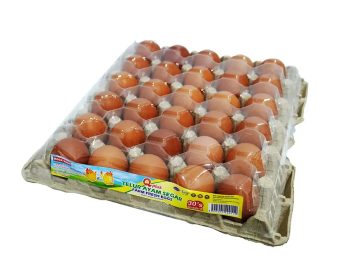31 Mac 2025
Egg prices drop in Johor during Ramadan, but will they stay low?
Consumers in Johor, southern Malaysia are experiencing a rare drop in egg prices, with some grades selling at nearly half their usual cost due to a supply glut during Ramadan.
Consumers in Johor, southern Malaysia are experiencing a rare drop in egg prices, with some grades selling at nearly half their usual cost due to a supply glut during Ramadan. However, this relief may be short-lived, as prices are expected to rebound after the Muslim Eid celebration in April.
Johor Investment, Trade, and Consumer Affairs executive councillor Lee Ting Han attributed the sharp decline to a temporary supply-demand imbalance caused by the fasting month.
“This is a yearly trend. During Ramadan, egg supply typically outpaces demand due to reduced consumption. Prices will stabilize after Raya. This is a great time to buy, but consumers should avoid over-purchasing and risking wastage,” he told local media.
Despite the price drop, Mr Lee urged consumers not to panic-buy. “Egg supplies remain stable, and the market will adjust accordingly. Enjoy the low prices, but buy responsibly,” he added.
Market checks revealed that a tray of 30 grade E eggs is now selling for as low as USD 0.85, compared to USD 1.80 previously.
Grade D eggs have dropped from USD 1.90 to USD 1.02, while grade C eggs now cost USD 1.17, down from USD 2.15. Larger eggs with better grades saw smaller reductions, with grade A eggs priced at USD 2.48 per tray, down from USD 2.80.
Mid-year egg price outlook
While the current dip in prices benefits consumers, egg prices are likely to increase after the festive season. Several factors could contribute to this rebound:
- Post-Ramadan demand surge – As consumption normalizes after Ramadan, the increased demand will likely push prices back up.
- Production costs – Feed prices, fuel costs, and labor expenses continue to impact production. Any increase in these costs could lead to higher egg prices.
- Government interventions – The Malaysian government has been monitoring egg supply and subsidies, but any policy changes could influence price stability.
- Export trends – If Malaysian egg producers increase exports to neighboring countries due to higher demand, it could tighten local supply and push prices higher.
Overall, while consumers can take advantage of current low prices, a gradual price increase is expected in the coming months as market conditions stabilize.















